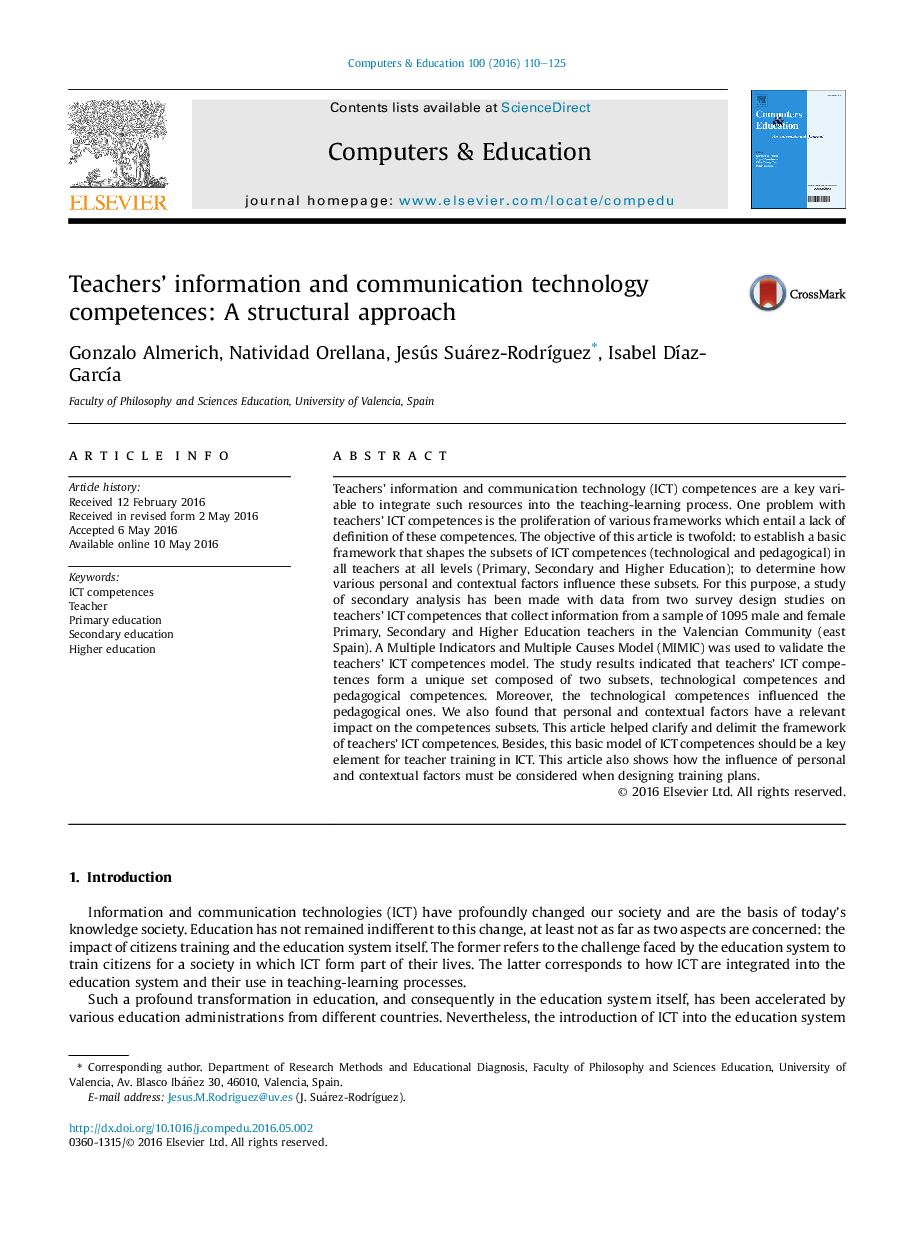| Article ID | Journal | Published Year | Pages | File Type |
|---|---|---|---|---|
| 348156 | Computers & Education | 2016 | 16 Pages |
•This study determines a basic ICT competences model for teachers of all levels.•The basic ICT model is composed of technological and pedagogical competences.•Technological competences influence pedagogical competences.•Personal and contextual factors have a key impact on the ICT competences.
Teachers’ information and communication technology (ICT) competences are a key variable to integrate such resources into the teaching-learning process. One problem with teachers’ ICT competences is the proliferation of various frameworks which entail a lack of definition of these competences. The objective of this article is twofold: to establish a basic framework that shapes the subsets of ICT competences (technological and pedagogical) in all teachers at all levels (Primary, Secondary and Higher Education); to determine how various personal and contextual factors influence these subsets. For this purpose, a study of secondary analysis has been made with data from two survey design studies on teachers’ ICT competences that collect information from a sample of 1095 male and female Primary, Secondary and Higher Education teachers in the Valencian Community (east Spain). A Multiple Indicators and Multiple Causes Model (MIMIC) was used to validate the teachers’ ICT competences model. The study results indicated that teachers’ ICT competences form a unique set composed of two subsets, technological competences and pedagogical competences. Moreover, the technological competences influenced the pedagogical ones. We also found that personal and contextual factors have a relevant impact on the competences subsets. This article helped clarify and delimit the framework of teachers’ ICT competences. Besides, this basic model of ICT competences should be a key element for teacher training in ICT. This article also shows how the influence of personal and contextual factors must be considered when designing training plans.
